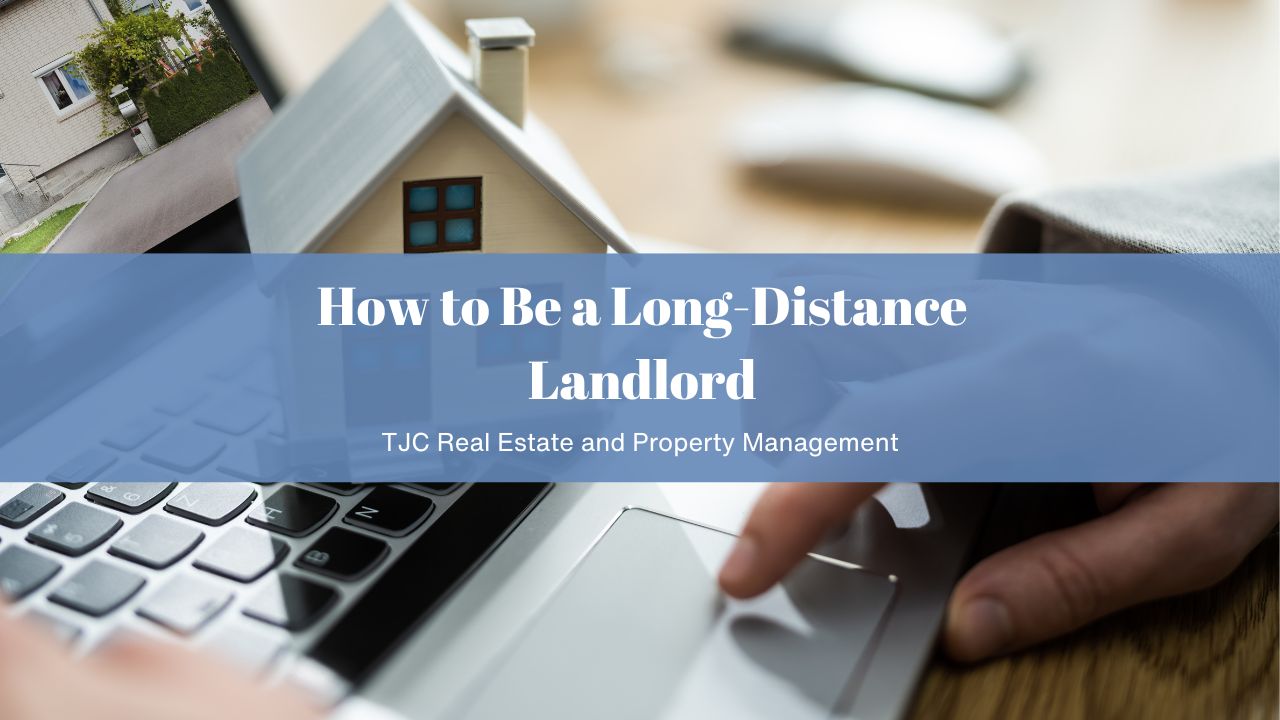
Managing rental properties can be challenging even when they are just a few streets away. The complexities increase significantly when your properties are located hundreds or even thousands of miles from you, which can understandably feel overwhelming.
Nevertheless, many investors are successfully taking on the role of long-distance landlords. The reason is simple: attractive investment opportunities are not always local. You may find that your home market is out of reach, you inherited a property in a distant location, or you’ve identified a booming market elsewhere that offers strong returns.

Regardless of the reason, managing a rental property from afar does not have to be difficult. With the right support, mindset, and systems in place, the process can be smooth and stress-free. In this article, we at TJC Real Estate and Management will outline everything you need to know to manage a rental property remotely with confidence and efficiency.
Not all investment properties are equally suited for long-distance landlords. To achieve success in managing properties from afar, it’s crucial to select the right investment. Ideal properties typically exhibit the following characteristics:
Properties with these features make remote management more efficient, help minimize turnover, and support consistent rental income.
As a long-distance landlord, you cannot be everywhere at once. It’s essential to have a team of trusted and reliable local professionals to help manage your property effectively. Remote property management is not a do-it-yourself endeavor, and assembling the right support network is critical.

At a minimum, your team should include:
Effective day-to-day management of your rental property requires a professional, local property manager. A skilled property manager serves as your eyes and ears on the property, providing peace of mind and ensuring smooth operations.
To select the right manager, conduct thorough interviews, review client feedback, ask detailed questions, and request references. A competent property manager will assist you with:
The most effective way to manage a rental property in Colorado remotely is by leveraging modern digital technology. This allows you to establish a centralized, digital command center, enabling smooth operations regardless of your location. Key tools to consider include:
When managing a property from a distance, it’s essential to maintain open and reliable communication with your tenants, as in-person meetings may not be feasible. Clear, timely, and professional interactions help build trust and prevent misunderstandings or resentment.

Consider the following best practices:
At least once every year, check for any updates on laws governing the rental property’s location. That is because each city or state has different laws regarding landlord-tenant relationships. To protect your rental business, you should have a local attorney in your team, join landlord forums in the neighborhood, subscribe to local news alerts and city news updates.
Doing so ensures that you’re always informed on rent control laws, inspection requirements, security deposit handling, eviction laws, and Fair Housing policies.
Even when you are managing the property smoothly from a distance, you should still aim to visit it at least once in a year or during vacancies. Plan your budget to include hotel stays, flights or gas, transportation, and meals. You should also keep track of these expenses as they may be tax-deductible.
By taking the time to visiting your properties in person from time to time you:
Being a long-distance landlord comes with its challenges. However, you can find success if you put the right systems in place. Ensure that you have standard operating procedures, hire help when needed, track expenses, income, and returns on investment, then have a yearly evaluation.
You can also work with local property managers who can establish all of this and more on your behalf. If you own rental properties in and around Denver consider the benefits of working with our team at TJC Real Estate and Management. Reach out today to learn about our trusted property management services!
© 2025 TJC Real Estate. All rights reserved. Privacy Policy | Terms of Use | Portable Tenant Screening & Disclosure | Website by Distill